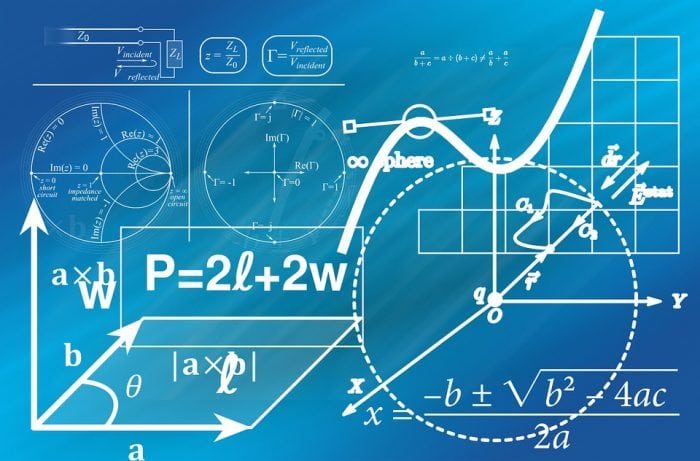
Those who are struggling to learn calculus in high school, or who did struggle with it in high school, may take some comfort in a recent study which suggests that achieving a mastery of the prerequisites to calculus is likely to be far more helpful than studying calculus in high school.
Calculus is a method of measuring continuous change over time. Learning calculus is an exercise in learning very abstract principles and formulas, and some people seem to get calculus intuitively while others struggle with it. In any case, understanding calculus seems to require a solid and complete understanding of the fundamental mathematical principles, and the study suggests that students and teachers in high school would be better off working to make sure there is a mastery of the basics before moving on to learning calculus.
A Study On Exposure
Researchers from the Science Education Department at Harvard Smithsonian Centre for Astrophysics conducted a study on more than 6300 college freshman at over 130 colleges across the United States. The goal was to find strategies and systems which could help high school teachers teach calculus more effectively. Calculus is valuable to many different fields of advanced study, such as economics and astrophysics, and the researchers hoped they could find ways of making sure more college freshman were equipped to learn calculus. It’s a matter of debate when exactly students should start learning calculus, in high school or college.
Philip Sadler, physicist and one of the researchers involved in the study, explains that the goal of the study was to determine which was more important: the prerequisites that prepare students for calculus or an initial exposure to calculus in high school followed by more comprehensive coverage in college.

Photo: edfungus via Pixabay, CC0
The researchers polled the 6200 college students about a number of different topics, covering things ranging from their experience with mathematics to their general educational history and their family background. This data was combined with mathematics scores, not just their calculus grades but also their SAT and ACT scores and grades in subjects like algebra, pre-calculus, and geometry. The students filled out the surveys at the beginning of the semester, and the surveys included an area where the teachers could input their grade for the course. The professors then removed the first page, which had the students names on it. This created an anonymized database of both the student’s scores and their self-reported info.
The scores were paired with the survey question responses to determine if having sat through a calculus course in high school offered a benefit to performance in college calculus. The researchers used a statistical model to separate those who had taken the subject in high school and those who hadn’t. After the researchers controlled for variables like socioeconomics and family relationships, the results seemed to indicate that only the students who struggled with calculus benefited from the previous exposure to calculus they had in high school. Students who were high performing didn’t seem to get much benefit from their prior exposure calculus.
Instead, the study suggests that one of the most important factors in determining a students success at calculus, in university or college courses, is a solid understanding of the basic math that underlies calculus. The more students had mastered prerequisite skills, the better their performance in calculus classes was. In fact, the study found that mastery of the basics was twice as important as early exposure to calculus when it came to success at the subject.
What’s The Reason For The Difference?
It’s difficult to find a perfect explanation for why weaker students tend to benefit from early exposure to calculus in a way that more stronger students don’t. However, the researchers suggest that one explanation could be that high school teachers are more likely to spend more time individually instructing their students and give them personal attention in a way that college professors don’t. College professors often have less flexibility or are simply more rigid in their instruction style. High school teachers often go back and cover subjects that students may be fuzzy on in a way that college professors don’t.

Photo: geralt via Pixabay, CC0
The study has some interesting implications for math instruction at the high school level. One of the most common complaints about high schools around the world is that the curriculum is overloaded, with faculty struggling to determine what is most important for their students to learn. If the research is correct, dropping calculus at the high school level in favor of ensuring that students have a mastery of the basics could not only free up some time but help students perform in later math classes. Sadler says that these kinds of arguments over how time is best spent are constant, but they are usually based only on personal experience and not data. Sadler explains the benefit of having research on the topic:
As it turns out, in this case, the professors are more right than high school teachers, because how well students did in courses before calculus makes the biggest difference in their college calculus grade. But, the heavy-lifting is done by those math teachers whose efforts lay the foundation for later student success.
Sadler explains that the main takeaway from the study is that if a student is really solid on concepts from geometry, algebra, and precalculus they will quite likely perform well in college calculus.
Despite the results of the study, it is unlikely that high school curriculums will begin to drop calculus anytime soon. For one thing, this is a single study, and more research will have to be done to confirm its findings. Changes to educational policy are also notoriously slow and difficult to implement. In fact, Sadler explains that the study’s findings don’t necessarily suggest students should drop high school calculus, merely that success in the course comes from having a solid understanding of the fundamentals. Nonetheless, those worried about performing poorly in high school calculus (whether now or in the past) may be able to relax a little.









